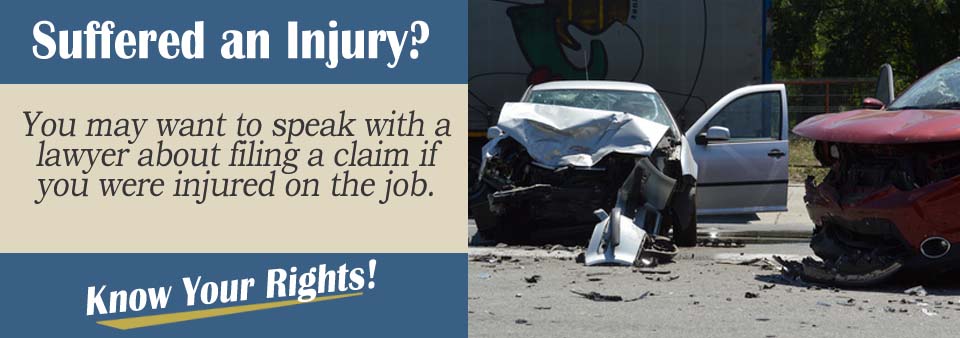Being involved in an accident while on the job can be complicated. Not only are you hurt, but you are hurt doing an activity that is involved with your employment.
Knowing the right way to pursue compensation for your damages is important. So how do you go about filing a claim?
We have asked attorney Alaina Sullivan to clarify this situation. Here is what she had to say:
How Workers’ Compensation Works
Workers’ compensation policies are available to employees who get hurt on the job, and the beauty of these claims is no fault needs to be proven in order for benefits to be paid. All the employee needs to show is that the injury occurred on the job and that it was connected with his or her work.
The employee receives non-taxable income equivalent to a certain percentage of their average wage. They also receive medical reimbursements for injuries sustained from the accident, reimbursement for any needed job training because of the injury, and, in serious circumstances, a settlement compensation amount for permanent injury.
Pain and suffering are not covered in workers’ compensation settlements. However, when an employee chooses to seek workers’ compensation for his or her injuries, that person is giving up the right to sue the employer for personal injury.

How Personal Injury Works
Any individual who has been injured due to the negligence of another person or entity can bring a personal injury lawsuit to recover damages. If you are injured on the job and can prove your employer was negligent and caused your injuries, you could pursue a claim.
The damages that come from a personal injury claim can involve property damage, medical expenses, lost income, as well as pain and suffering.
When to Pursue Workers’ Compensation
Workers’ compensation claims are typically settled quicker than personal injury cases which can be held up in the legal system for years. If you are looking for a quick way to pay property damages and medical bills and are not pursuing anything above that, you may have better luck with a workers’ compensation claim.
Further, if proving fault or negligence on behalf of the employer is going to be tricky, keep in mind that you will not need to prove fault in a workers’ compensation claim. Also, it is easier to handle these types of claims without hiring an attorney if you are looking to save on costs in the end.
When to Pursue A Personal Injury Claim
If your injuries are rather serious, and you are looking for compensation beyond simple medical bills and lost income but also pain and suffering, you may want to pursue a personal injury claim. Payouts for these types of claims can be significantly higher and can cover damages.
If fault or negligence will be a bit clearer to prove, and you are facing some serious damages, it is encouraged you talk to an attorney regarding a personal injury claim.
Weighing the Odds
In the end, it can be a gamble. You could try to take your case to court and get more for your damages, but you also run the risk that you could get less than you would had you simply taken workers’ compensation.
Litigation is unpredictable, and because you are charged with proving fault and negligence in any personal injury case, you do leave yourself open for the possibility that the court will not find in your favor.
Workers’ compensation, however, does not require proof of fault or negligence. It is normally easier to win a workers’ compensation claim than it is a personal injury one, but it ultimately depends on the case you have.
A good personal injury lawyer should be able to advise you on your options and assist in weighing the odds on pursuing either avenue.
Contact an Attorney Today
A licensed personal injury attorney will be able to evaluate your case and determine if you have a claim against the other party’s insurance company. To receive the compensation you need to pay for medical bills, auto body bills, and pain and suffering, you should speak with a personal injury attorney in your area today.